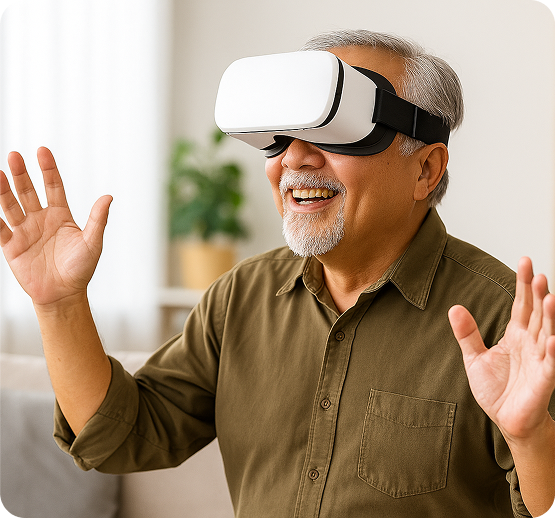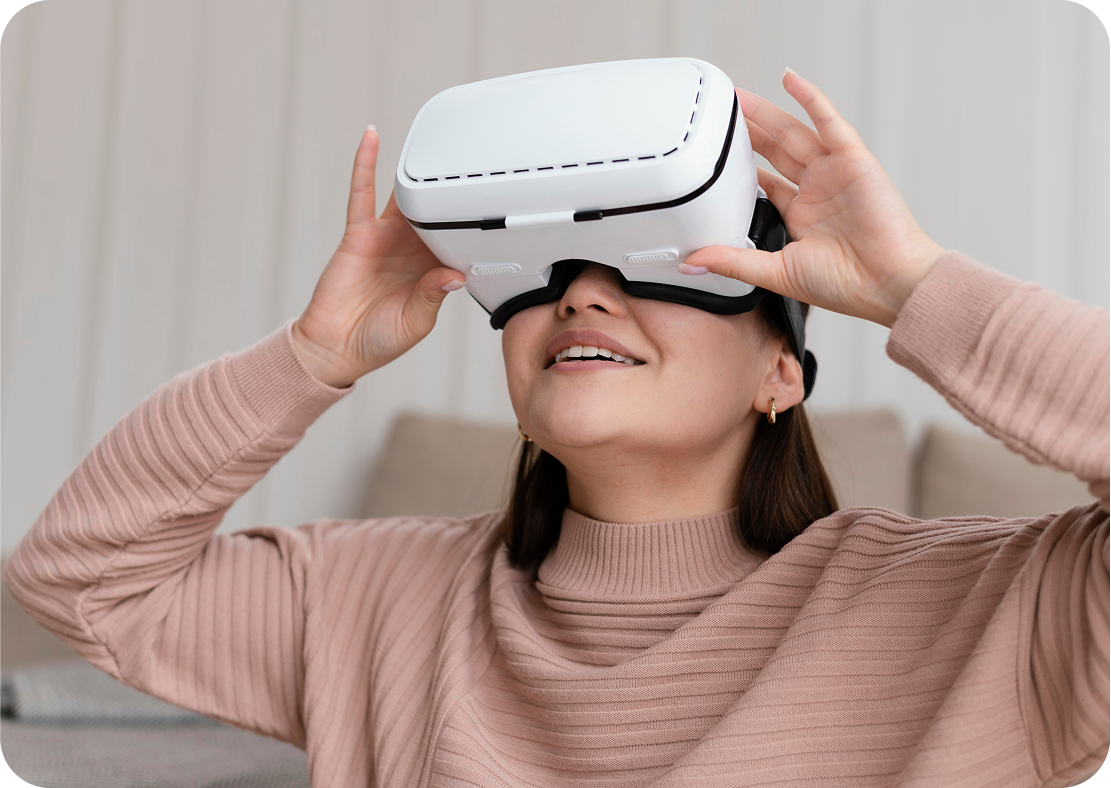RES Virtual Reality Focus Group
Virtual reality (VR) technology has come a long way since its inception, and its applications have expanded beyond the realm of entertainment. As a society, we are constantly seeking innovative ways to improve the quality of life for seniors and individuals with disabilities. In this article, we will explore how virtual reality can help these populations and what other features are available in this technology.

How Virtual Reality Helps Seniors
Mental Stimulation:
VR offers seniors an opportunity to engage in mentally stimulating activities, such as playing games, solving puzzles, or exploring new environments. This can help to maintain cognitive function and prevent age-related decline.
Social Interaction:
Virtual reality can provide seniors with a platform for social interaction, allowing them to connect with friends and family members in a virtual environment. This can help to reduce feelings of loneliness and isolation, which are common among seniors.
Physical Rehabilitation:
VR can be used as a tool for physical rehabilitation, helping seniors regain strength and mobility. Through the use of interactive games and exercises, seniors can improve their balance, coordination, and overall physical health.
Travel and Exploration:
For seniors who are unable to travel due to physical limitations or health concerns, virtual reality can offer a way to explore new places and experience different cultures from the comfort of their own homes.
How Virtual Reality Helps Disabled Individuals
Accessibility
VR can help to make various activities more accessible for individuals with disabilities. For example, individuals who are unable to participate in sports physically can engage in virtual versions of these activities, allowing them to experience the thrill and excitement of competition.
Pain Management
Virtual reality is an effective tool for pain management, particularly for individuals with chronic pain conditions. By immersing themselves in a virtual environment, patients can distract themselves from their pain and experience a sense of relaxation and well-being.
Mental Health
Virtual reality can also be used to help individuals with mental health conditions, such as anxiety or depression. Through exposure therapy and guided relaxation techniques, VR can help patients confront and overcome their fears and worries in a safe and controlled environment.
Education and Training
VR can provide disabled individuals with opportunities for education and training, allowing them to develop new skills and gain confidence in their abilities.

Other Features of Virtual Reality
Training and Simulation
VR is widely used in various industries for training and simulation purposes. For example, pilots can use VR to practice flying in different weather conditions and scenarios, while medical professionals can use it to simulate surgeries and other procedures.
Art and Design
Virtual reality offers a unique platform for artists and designers to create immersive and interactive experiences. From virtual galleries to 3D modeling, VR can help to bring creative ideas to life in new and innovative ways.
Gaming and Entertainment
Of course, one of the most popular applications of virtual reality is in the gaming and entertainment industry. VR games offer a level of immersion and interactivity that traditional gaming cannot match, providing players with a truly unique and unforgettable experience.
Virtual reality has the potential to revolutionize the way we approach healthcare, education, and entertainment for seniors and individuals with disabilities. By providing mental stimulation, social interaction, physical rehabilitation, and accessibility, VR can help to improve the quality of life for these populations. As technology continues to advance, we can expect even more innovative applications and features to emerge in the world of virtual reality.RES Community Center's upcoming Virtual Reality Focus Group is an excellent opportunity for individuals to share their thoughts and experiences with this technology. By participating in this focus group, you can help to shape the future of virtual reality and ensure that it continues to provide meaningful benefits for seniors, disabled individuals, and the wider community.

.svg)



.svg)



.svg)








.svg)